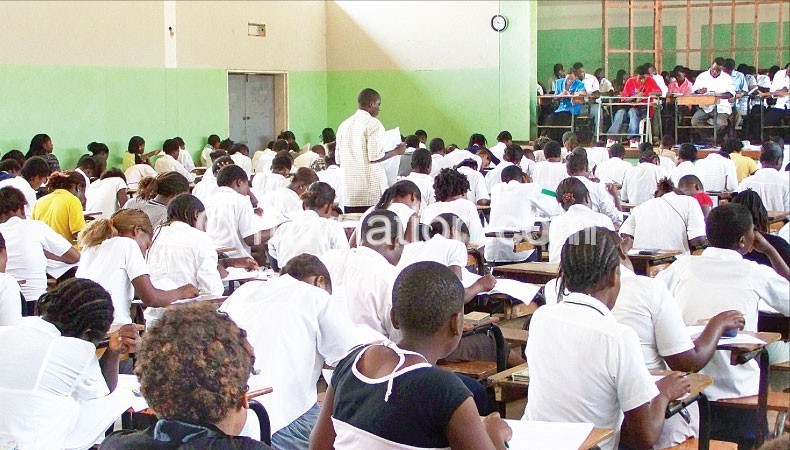Govt ‘cheats’ on JCE phase out!
The decision to abolish the Junior Certificate of Education (JCE) examinations has backfired following the Ministry of Education’s failure to implement its own resolutions, Nation on Sunday can report.
Education experts, who were opposed to this, say they have been vindicated on how ill-conceived the decision was. The activists also blame poor performance in the Malawi School Certificate of Education (MSCE) on the removal of JCE.

In a press statement issued to justify the abolition of JCE in 2015, the ministry, among other things, promised to award certificates of completion to all unsuccessful candidates.
“Successful candidates shall be awarded an MSCE certificate as is the case now while the unsuccessful candidates shall be awarded a certificate of completion which will recognise that the holder went through and completed secondary education,” reads the statement in part.
Our findings show that about 124 000 unsuccessful candidates in 2017 and 2018 are yet to receive certificates of completion. Added to this year’s figure of unsuccessful candidate, the number of deserving students comes to over 170 000.
Asked to explain why government has not lived up to its promise three years after phasing out the examinations, Minister of Education William Susuwele Banda pushed the issue to Malawi National Examinations Board (Maneb).
When contacted, Maneb executive director Gerald Chiunda expressed surprise that the ministry had pushed the matter to them, saying Maneb is not aware of the resolution to award certificates of completion. He further indicated that even if they were aware, they cannot issue certificates because the law does not permit them.
“The law only allows us to issue certificates to successful candidates; therefore, we cannot issue certificates of completion. If that was the direction of the ministry then they are better-placed to clarify; otherwise, the law does not allow us,” he said.
The contradiction between the ministry and Maneb—two key institutions in the administration of examinations—further exposes the weakness to the decision to abolish JCE.
In an interview with Nation on Sunday, the minister said government is consulting on whether to re-introduce the examinations, saying if JCE is re-introduced, there will be no need to issue certificates of completion.
This means that if government starts administering JCE again, the three cohorts of students—between 2017 and 2019—will have no JCE certificate and it is not known how government will compensate those students.
Civil Society Education Coalition (Csec) executive director Benedicto Kondowe questioned the timing of the abolition.
“It is evident that the ministry was not thoroughly prepared for this process. You will recall that Csec had cautioned the ministry that the developments leading to the abolition of JCE had shown that the state of preparedness was [questionable],” said Kondowe.
African Institute for Development Policy (Afidep), educationist Steve Sharra said the nation deserves an explanation why government has not lived by its plan to issue such certificates, which he said, were an incentive to unsuccessful students.
“It would also be helpful for government statistics on education attainment. The fact that not a single certificate has been issued is regrettable. It affects individuals concerned, but it also skews national statistics on education attainment. The Ministry of Education needs to update the nation on this,” said Sharra.
The ministry also said it would promote continuous assessment from Form One to Form Four so that students do not relax in the absence of JCE.
In order to promote continuous assessment, the ministry said it will strengthen the cluster examination system to be part of secondary school teacher development activity and students learning hubs.
Random interviews with teachers and district education managers (DEMs) show that there is a struggle to implement continuous assessment largely due to huge teacher-student ratio and also lack of materials such as books.
Further, schools cite lack of resources and pressure of work as stumbling blocks to administer cluster exams.
Another educationist, Limbani Nsapato, said implementation of continuous assessment needs strengthening since many schools are either not complying “or they lack the capacity to do so”.
“Complications also came about with the introduction of a new secondary school curriculum, which required thorough orientation of teachers as well as adequate teaching and learning resources to facilitate implementation. Government needs vigorous monitoring to ensure compliance in all schools.
“In addition, there is need to ensure that all teachers [particularly the untrained ones] are well oriented on how to carry out the assessment,” he said.
The aim of abolishing JCE, according to the ministry, was to prepare students to be less exam-focused. But the experience so far, argues Nsapato, is far from this purpose.
The Minister of Education said his ministry is currently orientating teachers to competently handle continuous assessments.





